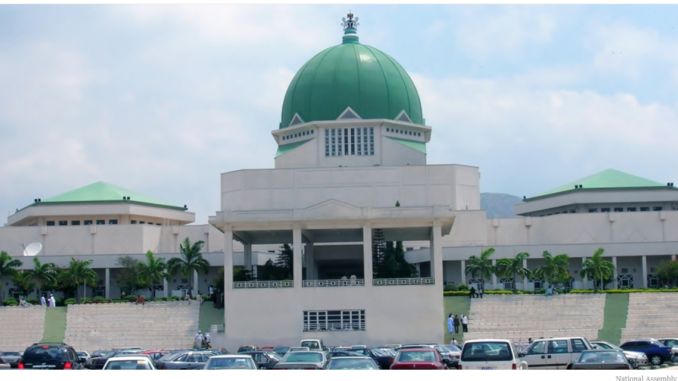
The National Assembly lobbied the Nigerian government to sign the Samoa Agreement, PREMIUM TIMES can report.
This newspaper obtained a letter from the National Assembly to the Minister of Budget and National Planning, Atiku Bagudu, asking the government to sign the Agreement.
PREMIUM TIMES reported that the House urged the government to suspend the implementation of the Agreement on Thursday, pending an investigation by its committee.
However, the letter shows that contrary to the position of the House on the Agreement, the National Assembly as an institution was involved in pushing for the government to sign it.
Not only did it push for the Agreement, but the federal legislature also participated as “observers” and nominated a candidate to take a position in the parliamentary wing of the organisation.
In the letter, dated 9 May 2024, and signed by Muhammed Argungu, the National Assembly urged the minister to sign the Agreement and pay all of Nigeria’s outstanding obligations to the Organisation of African, Caribbean and Pacific States and European Union, Joint Parliamentary Assembly (OACPS-EU-JPA).
Mr Argungu, a director of International Parliamentary Organisations, signed the letter on behalf of the Clerk to the National Assembly (CAN), Sani Tambawal.
In the letter, the National Assembly lobbied the government to sign the Agreement so that a Nigerian lawmaker could be elected into the OACPS-EU-JPA.
“The Leader of the Nigerian Delegation was nominated during the meetings to represent West Africa in the Bureau of the Regional Assembly. Regrettably, her nomination was, however, stepped down because Nigeria had not signed the Samoa Agreement and also due to Nigeria’s indebtedness.
“Accordingly, the Honourable Minister is requested to kindly consider the above and put in place machinery for signing the agreement and payment of the accumulated subscriptions to the Organisation of African, Caribbean and Pacific States and European Union (OACPS) to avoid the Nigerian delegation to the meetings being subjected to ridicule,” the letter reads in part.
The letter’s content contradicts the claim by many lawmakers that they were not involved in negotiating and ultimately signing the Agreement.
When contacted for comment, House spokesperson Akin Rotimi stated that since the matter is before a House committee, he would not comment.
Background
The Samoa Agreement, named after the South Pacific country where it was signed, is a legal framework between European Union (EU) member states and more than half of the 79 members of the Organisation of African, Caribbean, and Pacific States (OACPS).
The Agreement is the legal framework for the European Union’s relations with 79 countries, including 48 African, 16 Caribbean, and 15 Pacific countries.
Two weeks ago, Daily Trust newspaper, in a report, raised concerns over clauses that allegedly mandate LGBT rights in the Agreement signed by the Nigerian government on 28 June.
The report, premised on an opinion article by Sonnie Ekwowusi, a Lagos-based lawyer, was amplified by other news platforms.
It led to a backlash against the federal government, as many Nigerians criticised it for sacrificing the country’s moral values for Western aid.
However, the Nigerian government denied the claim and said there was no LGBTQ+ clause in the agreement.
PREMIUM TIMES fact-checked the Daily Trust report and found it untrue. The Nigerian Bar Association (NBA) also debunked the claim in the report. The Nigerian government has since formally reported Daily Trust to the media ombudsman.
Despite these, the House of Representatives, acting on a motion by the Deputy Minority Leader, Aliyu Madaki (NNPP, Kano), urged the government to suspend implementation over the alleged controversial clauses.
Campaign of Falsehood
The lawmakers have not been entirely truthful about the whole debacle over the Samoa Agreement, starting with some of the claims they made during the debate on Tuesday.
Most lawmakers who participated in the debate relied on the false claim of an “LGBTQ+ clause” despite available information.
Hours after the resolution, the House issued a statement saying it did not ask the executive to suspend the probe.
PREMIUM TIMES exposed the falsehood in a report, showing that the House adopted the resolution.
END

Be the first to comment